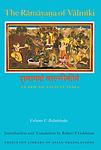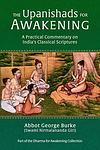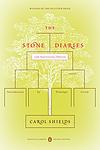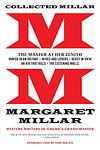The Greatest Canadian, Indian Books of All Time
Click to learn how this list is calculated.
This list represents a comprehensive and trusted collection of the greatest books. Developed through a specialized algorithm, it brings together 300 'best of' book lists to form a definitive guide to the world's most acclaimed books. For those interested in how these books are chosen, additional details can be found on the rankings page.
Genres
Countries
Date Range
Reading Statistics
Click the button below to see how many of these books you've read!
Download
If you're interested in downloading this list as a CSV file for use in a spreadsheet application, you can easily do so by clicking the button below. Please note that to ensure a manageable file size and faster download, the CSV will include details for only the first 500 books.
Download-
1. Midnight's Children by Salman Rushdie
The novel tells the story of Saleem Sinai, who was born at the exact moment when India gained its independence. As a result, he shares a mystical connection with other children born at the same time, all of whom possess unique, magical abilities. As Saleem grows up, his life mirrors the political and cultural changes happening in his country, from the partition of India and Pakistan, to the Bangladesh War of Independence. The story is a blend of historical fiction and magical realism, exploring themes of identity, fate, and the power of storytelling.
-
2. The Handmaid's Tale by Margaret Atwood
Set in a dystopian future, this novel presents a society where women are stripped of their rights and are classified into various roles based on their fertility and societal status. The protagonist is a handmaid, a class of women used solely for their reproductive capabilities by the ruling class. The story is a chilling exploration of the extreme end of misogyny, where women are reduced to their biological functions, and a critique of religious fundamentalism.
-
3. The God of Small Things by Arundhati Roy
This novel is a poignant tale of fraternal twins, a boy and a girl, who navigate through their childhood in Kerala, India, amidst a backdrop of political unrest and societal norms. The story, set in 1969, explores the complexities of their family's history and the tragic events that shape their lives. Their mother's transgression of caste and societal norms by having an affair with an untouchable leads to disastrous consequences, revealing the oppressive nature of the caste system and the destructive power of forbidden love. The novel also delves into themes of postcolonial identity, gender roles, and the lingering effects of trauma.
-
4. Neuromancer by William Gibson
In this groundbreaking cyberpunk novel, a washed-up computer hacker is hired by a mysterious employer to pull off the ultimate hack. As he navigates a dystopian future filled with artificial intelligence, corporate espionage, and virtual reality, he must confront his own past and the dark realities of the digital world. The narrative explores themes of technology, identity, and consciousness, pushing the boundaries of science fiction literature.
-
5. Anne of Green Gables by L. M. Montgomery
The book follows the life of a young orphan girl who is mistakenly sent to live with an elderly brother and sister who originally wanted to adopt a boy to help them with their farm in Prince Edward Island. Despite the initial disappointment, the girl's charm, vivacity, and imagination soon win over her new guardians. The story details her adventures and mishaps in her new home, her struggles and triumphs at school, and her gradual maturing into a smart, independent young woman.
-
6. Mahabharata by Vyasa
The book is an English translation of the ancient Indian epic, originally written in Sanskrit, which tells the story of a great war that took place between two groups of cousins, the Kauravas and the Pandavas. The narrative explores themes of duty, righteousness, and honor while also featuring a rich array of gods, goddesses, and supernatural beings. It is not only a tale of war and conflict, but also a profound philosophical and spiritual treatise, containing the Bhagavad Gita, a sacred text of Hindu philosophy.
-
7. A Suitable Boy by Vikram Seth
Set in 1950s India, this epic novel follows the story of four families over a period of 18 months, focusing primarily on the young woman Lata and her mother's quest to find her a suitable husband. The narrative explores the political, social, and personal upheavals in a newly independent India, struggling with its own identity amidst the backdrop of a society grappling with religious tensions, land reforms, and the shaping of a modern democratic state. Lata's journey is an exploration of love, ambition, and the weight of familial duty.
-
8. A Fine Balance by Rohinton Mistry
"A Fine Balance" is a poignant narrative set in India during the 1970s, a time of political turmoil and upheaval. The plot revolves around four diverse characters - a widow, a young student, and two tailors - who are brought together by fate. Through their interconnected lives, the book explores themes of caste, poverty, political corruption, and the human spirit's resilience. It offers a profound exploration of the delicate balance that sustains life amidst adversity.
-
9. The English Patient by Michael Ondaatje
"The English Patient" is a story of four diverse individuals brought together at an Italian villa during the final days of World War II. The narrative revolves around a severely burned man who can't remember his name or past, a young Canadian nurse who tends to him, a Sikh British Army sapper, and a Canadian thief. As they navigate their own traumas and losses, the past of the mysterious patient slowly unravels, revealing a tale of love, identity, and betrayal.
-
10. Life of Pi by Yann Martel
A young Indian boy named Pi Patel survives a shipwreck and finds himself adrift in the Pacific Ocean on a lifeboat with a Bengal tiger named Richard Parker. Over the course of 227 days, Pi uses his knowledge of animal behavior and survival skills to coexist with the tiger, ultimately leading to an unusual and deeply spiritual journey. The story explores themes of faith, survival, and the interpretation of reality.
-
11. Ramayana by Valmiki
The book is an ancient Indian epic poem which follows the journey of Prince Rama as he embarks on a quest to rescue his beloved wife Sita from the clutches of Ravana, the demon king. The narrative explores themes of morality, dharma (duty/righteousness), and the struggle between good and evil. The story is not just about Rama's battle against Ravana, but also his spiritual journey and the importance of upholding one's duties and responsibilities.
-
12. Selected Stories of Alice Munro by Alice Munro
This collection of short stories offers a comprehensive view of the author's narrative talent, showcasing her ability to create complex characters and situations that reflect the human condition. Set in various locations, from small Canadian towns to exotic foreign locales, each story delves into the intricate relationships, personal struggles, and quiet triumphs of its characters. The author's writing is marked by her keen observation, psychological insight, and the ability to convey the extraordinary within the ordinary, making each story a unique exploration of life's complexities.
-
13. Nectar in a Sieve by Kamala Markandaya
"Nectar in a Sieve" is a tale of an Indian peasant woman named Rukmani who endures the hardships of rural poverty, natural disasters, and personal tragedy, while trying to raise her children and maintain her marriage. The book explores themes of love, hope, and the strength of the human spirit against the backdrop of a rapidly changing India. Despite the constant struggles, Rukmani never loses her faith and hope, symbolizing the resilience and strength of ordinary people in the face of adversity.
-
14. Obasan by Joy Kogawa
The book is a semi-autobiographical novel that tells the story of a Japanese-Canadian woman named Naomi, who reflects on her experiences during World War II. As a child, Naomi was forced into internment along with thousands of other Japanese-Canadians, following the bombing of Pearl Harbor. The narrative explores the themes of racism, identity, silence, and the power of memory, as Naomi grapples with the trauma of her past and the impact of her cultural heritage on her present life.
-
15. The Blind Assassin by Margaret Atwood
The novel is a complex narrative that weaves together the story of two sisters in early 20th century Canada, one of whom publishes a scandalous novel that leads to her suicide. The surviving sister, now an elderly woman, reflects on their lives, revealing family secrets, heartbreak, and the truth behind the scandalous novel. The narrative is interspersed with excerpts from the controversial book, a science fiction story within a story, adding layers of intrigue and mystery.
-
16. Upanishads by Hindu scripture
The book is a comprehensive compilation of ancient Hindu scriptures known as the Upanishads, which are fundamental to understanding the core philosophies of Hinduism. The text delves into profound spiritual teachings and philosophical dialogues about the nature of reality, the self, and the universe, providing invaluable insights into concepts such as karma, reincarnation, moksha, and the ultimate truth of existence. It serves as a guide to spiritual enlightenment and self-realization, offering timeless wisdom for introspection and personal growth.
-
17. Home and the World by Rabindranath Tagore
This novel is a political and philosophical exploration set in early 20th century India during the country's struggle for independence. It revolves around three main characters: a nobleman, his wife, and his friend, a fervent nationalist. The story unfolds as the wife, initially confined to the inner quarters of their home, begins to question her societal boundaries and the idea of nationalism after meeting her husband's friend. The narrative delves into the complexities of love, freedom, and the concept of home and world, set against the backdrop of the Swadeshi movement, a part of the Indian independence movement against British rule.
-
18. The Stone Diaries by Carol Shields
The novel follows the life of Daisy Goodwill Flett, a seemingly ordinary woman, from her birth in Canada in 1905 to her death. It explores her experiences as a mother, wife, and widow, as well as her work as a gardener and her later years as a columnist. The book is unique in that it is written in a variety of styles including letters, diary entries, and third-person narrative, and it explores themes of identity, love, and the often overlooked lives of women.
-
19. Beast In View by Margaret Millar
"Beast In View" by Margaret Millar is a gripping psychological thriller that follows the story of Helen Clarvoe, a troubled woman who becomes entangled in a web of deception and manipulation. When Helen receives a series of disturbing phone calls from an unknown caller, she becomes convinced that someone is out to destroy her life. As she desperately tries to uncover the identity of her tormentor, Helen finds herself questioning her own sanity and unraveling dark secrets from her past. With its intricate plot and complex characters, this suspenseful novel explores themes of obsession, betrayal, and the fragile nature of the human mind.
-
20. Heat and Dust by Ruth Prawer Jhabvala
"Heat and Dust" is a novel set in two different time periods in India, exploring themes of colonialism, gender roles, and cultural clash. The story alternates between the 1920s, following the scandalous life of Olivia, an English colonial wife who falls in love with an Indian prince, and the 1970s, where her step-granddaughter journeys to India to uncover the truth about Olivia's life and her own identity. The narrative exposes the complexities of love, culture, and identity in the context of British colonial rule and post-colonial India.
-
21. Untouchable by Mulk Raj Anand
"Untouchable" is a novel that explores a day in the life of a young Indian man, Bakha, who belongs to the lowest caste, the Untouchables. The narrative follows Bakha's experiences of extreme discrimination and humiliation as he performs his job as a latrine cleaner. Despite the harsh realities of his life, Bakha dreams of a better future and is fascinated by the modern world and British rule. The novel provides a poignant critique of the caste system and the social inequalities in India.
-
22. The Deptford Trilogy by Robertson Davies
"The Deptford Trilogy" is a series of interconnected novels that explore the life of a man from a small Canadian town named Deptford, and the ripple effects of a single childhood event that shaped the lives of three boys. The narrative weaves themes of love, guilt, art, and the complexity of human nature. The story is told from multiple perspectives and spans several decades, providing a deep exploration of the characters' psychological and spiritual development.
-
23. Lives of Girls and Women by Alice Munro
"Lives of Girls and Women" is a coming-of-age story about a young girl growing up in a small town in Canada during the 1940s. The novel explores the protagonist's journey towards self-discovery and understanding of the world around her. The protagonist grapples with societal expectations, familial relationships, and her own burgeoning sexuality, all while navigating the complexities of adolescence and the transition into adulthood. The book offers a profound exploration of the female experience, delving into themes of gender, identity, and the intricate dynamics of human relationships.
-
24. Clear Light of Day by Anita Desai
"Clear Light of Day" is a novel set in Old Delhi, which explores the dynamics of the Das family. The story shifts back and forth in time, reflecting on the lives of siblings Bim, Raja, Baba, and Tara, and their relationships with each other and their aunts. The narrative delves into themes of memory, time, and decay, as well as the political upheaval of the Partition of India. The novel is a poignant study of family relationships, personal change, and loss.
-
25. The Recognition of Sakuntala by Kālidāsa
"The Recognition of Sakuntala" is an ancient Indian play that tells the story of a beautiful woman named Sakuntala who lives in a hermitage and falls in love with King Dushyant. After a series of misunderstandings and a curse that causes the king to forget Sakuntala, the two are eventually reunited when a fisherman finds the royal signet ring that Dushyant gave Sakuntala, leading to her recognition. The play is a classic example of the Indian dramatic tradition, with its mix of romance, comedy, and elements of the supernatural.
Reading Statistics
Click the button below to see how many of these books you've read!
Download
If you're interested in downloading this list as a CSV file for use in a spreadsheet application, you can easily do so by clicking the button below. Please note that to ensure a manageable file size and faster download, the CSV will include details for only the first 500 books.
Download























